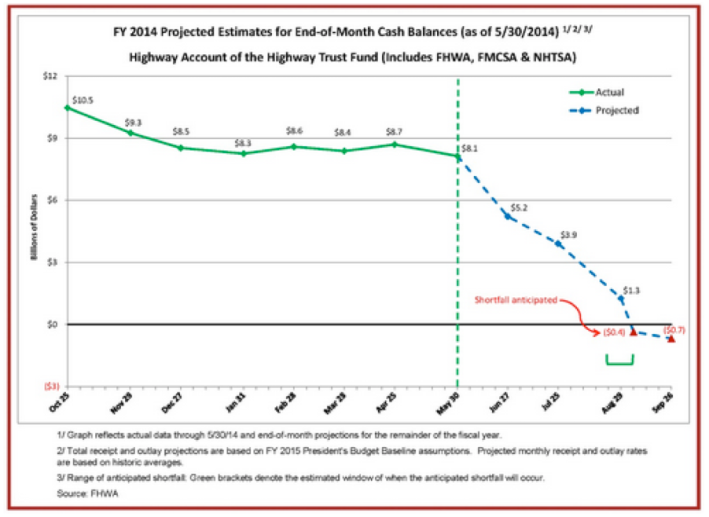
The push for a long-term transportation bill is slowly giving way to the reality of an utter lack of consensus around a funding mechanism. The chair of the Senate Finance Committee, which is charged with finding that consensus, indicated today that the job just isn’t possible right now. The Hill reports that Sen. Ron Wyden (D-OR) has a bill in the works for a short-term extension to keep MAP-21 alive and funded, at least, until the end of the year.
The Highway Trust Fund (20 percent of which goes to transit) is expected to run out of money in August, well before the bill expires September 30.
Wyden’s plan would transfer $9 billion from the general fund to keep MAP-21 going until December 31. The Senate Environment and Public Works Committee unanimously passed a six-year transportation bill last month, but the bill lacks a funding source. The House hasn't taken any action, except for floating a scheme to pay for transportation by reducing Saturday mail delivery.
The Hill’s Keith Laing notes that Wyden has spoken against temporary transportation funding measures, saying it would be a “tragic mistake” for lawmakers to fail to pass a long-term package. But there is not yet a critical mass of lawmakers lining up behind any of the funding proposals on the table: a 12- or 15-cent fuel tax increase, President Obama’s corporate tax reform proposal, an upstream per-barrel oil fee, or the GOP post office plan. Wyden himself hasn't come out in favor of any particular idea.
Wyden’s three-month extension would push big decisions about funding into the lame duck period, between the November Congressional elections and the start of the next Congressional session. Several lawmakers have indicated that the lame duck is the best -- or only -- chance for passing a long-term transportation bill.
Of course, SAFETEA-LU was extended for three years before MAP-21 passed, and lawmakers failed in every season to gather up the guts to address the funding shortfall in a sustainable way. Another series of extensions or short-term funding gimmicks remains a strong possibility, even after the lame duck.





